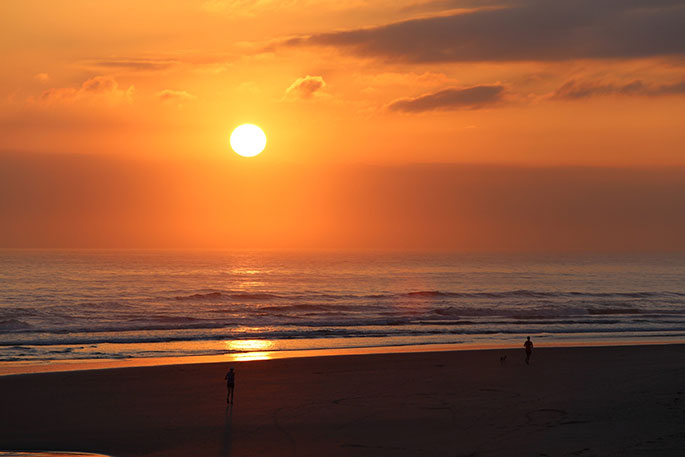For the first time in my life, I am experiencing anxiety about something that just about everyone on the planet is also worrying about. There have been other incidents that have captured the world’s attention such as plane crashes, minor wars, major sporting events, but they usually happen in specific places and they don’t usually impact directly on our daily lives.
Covid-19 is different. Every single one of us has a stake in this pandemic and it is affecting us all in the same way. Lockdowns, panic buying, fear. I’ve never been caught up in a ‘global threat’ like this before.
Like me, I suspect that this is true for almost everyone born in the last 60 years — they may have had a local issue, but never something this global or this intense.
As I write this though, I think of my mother, who next month turns eighty-six.
For her generation, this global sense of anxiety isn’t new. She was born in the UK during the Great Depression, then when she was five years old, World War Two began. She recalls the intense fear she felt every time the air raid sirens sounded. Almost every night for months, she could look to the south of her home and see the city of Manchester on fire. Several times during the war, the bombs hit closer to home.
As a young mother, she joined millions around the world fearing for the future during the Cuban Missile Crisis in 1962.
Those experiences were terrifying, but as well as fear and anxiety there was something else — a stronger sense of purpose and community spirit of co-operation and camaraderie. It is said that during the Second World War, people became happier. When their lives were disrupted they became more supportive of one another and developed that ‘keep calm and carry on’ attitude. Of course, there was still crime and some social disorder, fights and personal discord, but overall, people banded together.
Despite the horrific destruction and loss of life, civilization survived. After the war, society also changed.
I think about that now during this current pandemic. Yes, it will be devastating to many communities and to the global economy, but civilization will survive the Coronavirus.
Let’s remember, the virus is one of the simplest forms of life on the planet. It is a replication device that needs us our bodies to do the actual replicating for it. It has no feelings, no culture, no compassion, no hatred. It cannot read, it cannot write. It is simply reproducing with no consciousness whatsoever.
Our species has survived for millennia and suffered even worse plagues in the past. The bubonic plague killed millions of people in the 1300s and continued to kill us for centuries. The common cold wiped out millions of indigenous people in the Americas and the Pacific when European colonists arrived in their lands.
Still, we survived. Survival is in our DNA.
It is our curiosity, our inventiveness and our spirit that helps our species survive and it will help us again.
I am not denying it will be painful, and heartbreaking and we will collectively lose loved ones. The economic damage will be equally painful, but we will get through it.
The question that comes from all this for me is: what kind of society do we want to build after it’s gone?
Because our species is full of contradictions: we love and we hate; we make peace and we fight; we create and we destroy.
So, when the dust settles do we return to our polluting, over-consuming, greedy ways, or do we start to make changes that benefit us all and our planet?
Do we just bail out the banks and their shareholders, or do we ensure that the now unemployed don’t lose their homes because they cannot afford their mortgages?
Do we vote for politicians who actually care about people or do we vote for power-mad, vainglorious charlatans who are only there for their own self-interest.
Do we fight in supermarkets over toilet paper or do we learn to share?
At this time of global anxiety, I acknowledge that I’m afraid of what might happen. I’m afraid for my own future because I am now unemployed. I worry about the people dying and those whom they leave behind. I worry about the businesses that are closing and the people who, like me, are losing their livelihoods.
But I also acknowledge that most people I know are kind and supportive, and rallying around one another. I acknowledge the doctors and nurses who are working back-breaking shifts to care for the sick. I acknowledge the scientists who are working on vaccines and potential cures.
I also acknowledge that it is during our greatest crises we discover what kind of people we are, both individually and collectively.
This is a time of anxiety and doubt, but it is also a time of hope and courage.
Despite our myriad flaws, humanity has the creativity, the inventiveness and the ability to overcome this latest threat to our existence.
In fact, we have the ability to solve all our problems from poverty to climate change. We may be capable of violence and destruction, but we are also capable of bravery, justice, compassion, and love.
The choice is ours.


I love your write at this hour of peril.
Thank you, Andrew, for seeing the possibilities and acknowledging the pain all in one article. x